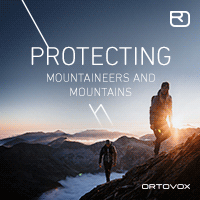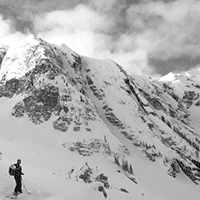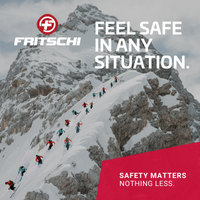5 Tips For Backcountry Skiing in Hakuba Japan
Hakuba is a world-famous backcountry ski destination, and for a good reason. Each season Hakuba gets over 11 meters of snow and has some of the best terrain in Japan. There is a reason why Hakuba is an annual stop on the Free Ride World Tour and why we have compiled a list of the 5 things to know about backcountry skiing in Hakuba. Hakuba's 10 resorts cover only a tiny fraction of the skiable terrain in the valley. The best skiing is the backcountry. With lift-accessible terrain from the top of the resorts to the nearly 1,000m of vertical above Hakuba's backcountry and world-renowned fresh powder make for a skiers paradise. To top it all off, the Hakuba Valley is located only a few hours from Tokyo in the Japanese Alps. It is the perfect place to get your deep powder fix. Unlike Niseko, which requires a connecting flight after landing in Japan, Hakuba can be easily accessed by bus, car, or train.1) Hire a Guide
2) Avalanche Safety in Japan
Nadare.jp - Hakuba Reports
Mountain-forecast - Shirouma Dake Weather Forecast
3) Take an Onsen
4) Experience the Culture
5) Go See the Snow Monkeys
FAQ
When should I go Backcountry Skiing in Hakuba?
Japan's ski season is from Mid-December to May. For the best chance for fresh powder, you should plan your trip between mid-January and mid-March.
How do I get to Hakuba?
Most travellers fly to Tokyo and then take public transit from Tokyo to Hakuba.
Bus
Two bus operators service Hakuba with Highway buses are Nagano Snow Shuttle and Alpico Bus lines. Both offer services direct from the airport to Hakuba.
Train
JR operates a high-speed train from Tokyo Station to Nagano Station. To get to Tokyo station from the airport, you can take the high-speed express train from the bottom floor of the airport. Once at Tokyo station, you will need to transfer to the bullet train bound for Nagano. Once in Nagano, you need to transfer again to a bus which will take you to Hakuba station.
The trains have more regular departure times than the busses but are more expensive. They also have limited space for baggage (especially skis and packs). If you opt for the train, ship your luggage from the airport. There are luggage shipping services on the main floor of the airport, and they will drop your bags off at your final destination within 24hrs.
Chuo Taxi
Chuo taxi is a private taxi operator that provides door-to-door service. This is an excellent option if your flight arrival times don't match the bus or train schedules. Chuo taxi is more expensive than the train or the bus, but offers customized service and takes luggage. Be aware you may share the cab with different groups.
Rental Car
There are many rental car options available at the airport. A rental car will give you the most freedom to travel but is the most expensive option. You will also require an international driver's license to drive a car in Japan. Most road signs are English and Japanese, but driving in Tokyo can be daunting. Be aware that many highways in Japan are toll roads, and you will be required to pay a fee to travel on them. Unless you plan to move between multiple ski areas, I don't recommend getting a car.
What do I need to bring Backcountry Skiing in Japan?
Backcountry skiing in Japan is like backcountry skiing anywhere in the world. You will need your ski boots, skis, poles, backpack, climbing skins, beacon, shovel, and probe. If you plan on bringing an avalanche backpack, be aware of flight travel restrictions. If you are using a compressed air system, finding a location to fill your canister can be a challenge. Be sure to talk to your backcountry tour operator about what you can bring and where to charge canisters. If you don't have the equipment or simply don't want to lug it halfway across the world then you can easily rent your gear while you are here.
Is Backcountry Touring in Japan Dangerous?
Backcountry Skiing can be dangerous if you are not prepared. Check the conditions before you go, and always hire a guide.
Is there Heli Skiing in Hakuba, Japan?
No, there is no Heli. Hakuba has a variety of off-piste and backcountry available, including lift-accessible and touring-accessible terrain.
Final Thoughts
There you have it, some of our top tips on how to get the most out of a backcountry ski trip to Hakuba Japan. With a little planning and preparation, you can have an incredible trip and create memories that will last a lifetime.
Happy Backcountry Skiing!









